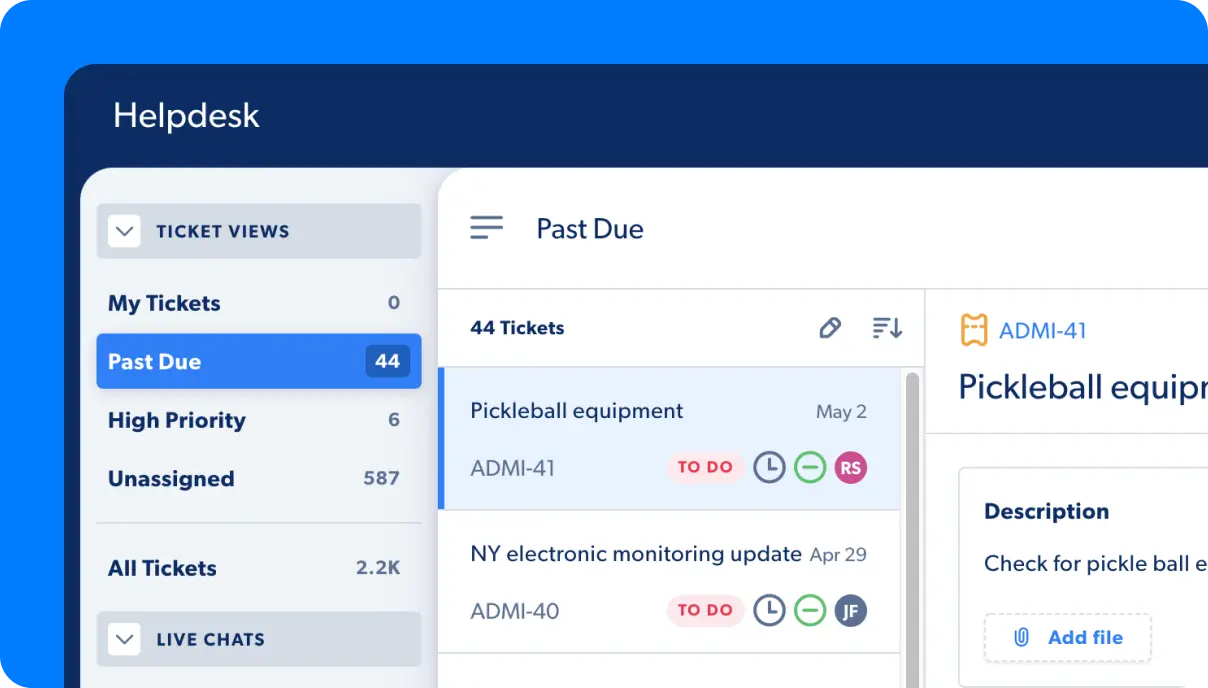Knowledge is power, right? So in today’s business landscape, one might say, a well-organized, intelligent knowledge base is your Mjölnir (you know, Thor’s hammer). But how do you know if you really need one? Maybe your Toby plugin is getting the job done just fine. Or perhaps you have a spreadsheet or Google doc with some resources people can surf as needed. This checklist can help you decide if it’s time (it is) to invest and where to start.
Now, I get it. Change can be scary. But holding onto outdated methods like sifting through mountains of paperwork, deciphering cryptic emails, or relying on that one colleague who mysteriously always knows everything just won’t cut it anymore. It’s like using a horse and buggy against the Fast & Furious fellas. It’s time to level up, my friend.
So hang on as we navigate the seven telltale signs that you need enterprise knowledge base software in your business. (Plus, we’ll even tell you the six best enterprise knowledge base software available in 2023.)
Lets goooo!
The 7 signs it’s time to invest in an enterprise knowledge base software

1. You have a lot of customers
If you’ve got plenty of customers, chances are you’ll need an enterprise knowledge base software solution sooner rather than later. Enterprise knowledge base software can help organize customer support queries and provide answers quickly, keeping your customers happy and satisfied with your service.
2. You’re finding it difficult to keep track of documents
From contracts and reports to invoices and customer complaints, enterprise knowledge base software can help you locate important documents quickly and efficiently when you need them. No more hours spent searching for that one client’s contact details!
3. Your employees spend a lot of time looking for answers
Suppose your employees spend hours (or days!) trying to find answers to customer queries or looking up information related to their job roles. In that case, it’s definitely time to invest in an enterprise knowledge base software solution. With the right software, your team can easily find the right answers and quickly get back to work.
4. You want to streamline your customer service process
Customer service is a crucial part of any business, and enterprise knowledge base software can help you simplify the entire process. With an organized system that stores all necessary information in one place, employees can quickly access documents, answer customer queries, and resolve issues without wasting time. Empowering customers with self-service solutions can help save your team time and increase customer satisfaction.

Automate Your Work
Capacity’s enterprise AI chatbot can help:
- Answer FAQs anytime, anywhere
- Find relevant documents within seconds
- Give surveys and collect feedback
5. You want to reduce customer service costs
If you’re looking to cut down on customer service costs, then investing in enterprise knowledge base software is definitely the right move. An organized system will help reduce redundant questions and provide quick answers, saving your team valuable time that can be used for more important tasks.
6. You want to optimize customer experience
Your company competes on the customer experience, whether you’re doing so intentionally or not. And so, enterprise knowledge base software can help you stay on top. With a comprehensive system to store customer information and quickly provide answers to queries, your team will be able to deliver exceptional service in no time. And that then puts you ahead of your competition.
7. You want to stay competitive
To piggyback off the above, if you haven’t realized you’re competing based on your CX, you’re behind the curve. That said, it’s not too late. Investing in enterprise knowledge base software can help give your team the tools and information they need to quickly resolve customer issues and optimize processes.
Now that you know the signs, let’s look at the 6 best enterprise knowledge base software solutions available for 2023.
The 6 best enterprise knowledge base software on the market today

Here’s a preview of the top enterprise knowledge base software companies. Read on to learn a little more about each.
1. Capacity
Okay now, act surprised: Capacity is at the top of our list. Obviously, we picked this topic because we’re pretty heavily invested in helping companies build out practical knowledge base solutions. This is a quick rundown of our KB platform, but if you want to see it in action, sign up to try it here for free.
We’ve built an AI-powered enterprise knowledge base software with features like NLP, automated workflows, and intelligent search built-in. It lets you centralize your knowledge, automate your responses, and provide personalized self-service experiences. In fact, we just looked at the numbers today. In the last quarter, we deflected an average of 94% of repetitive inquiries for our customers. NINETY-FOUR PERCENT!
Benefits: I could stay here all day, but in the interest of time (yours and mine), I’ll give you my top three benefits of our platform.

- Deflection: You never have to answer the same question twice because our knowledge base answers for you. And because it can generate variant inquiries, questions asked even slightly differently will still get the same, consistent, accurate response.
- Reduced support costs: Because you’re deflecting around 94% of your inquiries on average, your agents aren’t overloaded. Less overload means happier agents. And happier agents then lead to less attrition. (And your natural attrition might not need to be replaced.)
- Higher first contact resolution: Because Capacity can serve up internal and external answers, you can give folks the correct answers faster than ever, with no waiting on hold and no queue line number. (And, of course, research shows for every 1% your FCR increases, so too does your CSAT.)
2. Confluence
Confluence by Atlassian is a collaboration and knowledge management platform that lets you create, organize, and share knowledge. It’s a solid competitor and one I’ve used at several of my past employers. It lets you collaborate on documents, organize content, and integrate with other Atlassian products.
Benefits: Confluence is a pretty cool tool. Some advantages to keep in mind are:
- Boosted team collaboration: You can see exactly who’s working on what, so you can prevent task overlap.
- Streamlined knowledge sharing: This is table-stakes functionality, but it’s important to mention. You can store your info and share it with other teams quickly. It’s super handy for internal use cases.
- Improved documentation workflows: You can track changes to your documents, which lets you see what’s happening with your knowledge content and then see how it’s used throughout your company.
3. Bloomfire
Bloomfire is another knowledge-sharing collaboration platform. It lets you create and curate knowledge bases for both internal and external use. It has features like content organization, search, and social collaboration.
Benefits: Bloomfire has some great features, but here are a few of the big ones to keep in mind:
- Increased customer engagement: With their social features, you can interact with customers and answer their questions directly. This helps create an engaged community around your product or service.
- Improved searchability: They integrate with some search tools to make finding the answers you need easy. Plus, its AI-powered content recommendation system can provide related, relevant content fast.
- Easy knowledge curation: They also have an interface that makes creating and organizing your content easy.
4. HelpDocs
I used HelpDocs for years before coming on board at Capacity. It’s a solid knowledge base platform. It’s easy to use and lets you create and maintain any kind of documentation. It lets you manage articles, brand the interface, and track your analytics. It also gives you access control for internal and external use.
Benefits: Here are a few of the benefits to consider when looking at HelpDocs:
- Flexible content creation and organization: You can create articles, organize them into categories, and even set up content hierarchies.
- Advanced customization options: It also has features like custom document themes and an easy-to-use editor.
- Analytics tracking: You can track how your clients engage with your content and then adjust accordingly.
5. Shelf
Fun fact, I was able to get early access to Shelf when it was first launching, so I’ve seen it grow from the earliest of days into the platform it is today. It’s a knowledge management software that lets you store all your documents in one place. It has features like search functionality, internal user access control, and integration with other platforms like G Suite and Slack.
Benefits: Some things to consider when looking into Shelf are:
- Organization and searchability: You can tag content, organize it by category, and quickly find the answers you need. Plus, their full-text search capabilities make it easy to locate documents fast.
- Secure access control: You can create secure spaces for your documents and then grant access to internal users on a need-to-know basis.
- Security: They also have multi-factor authentication and other security measures to keep your content safe and secure.
6. ProProfs Knowledge Base
Finally, there’s ProProfs Knowledge Base. It’s a comprehensive knowledge base software with features like FAQ management, article creation and organization, analytics, and automated responses.
Benefits: Here are some of the main benefits to consider when looking into the ProProfs Knowledge Base:
- Integration options: You can integrate it with other platforms like Slack and Salesforce.
- FAQ management: You can create unlimited FAQs, organize them, and customize the look and feel of the page.
- Automated responses: You can set up automated response emails to respond to customer inquiries faster.
Want to check out one of the tools first hand? Try Capacity for free right now!













































